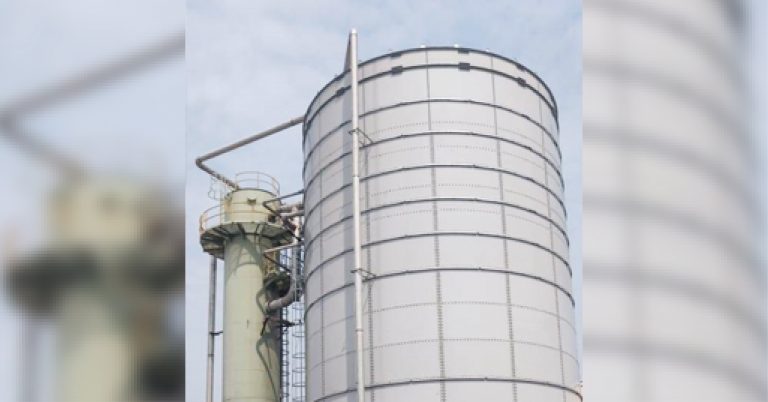Nepal’s healthcare sector plays a crucial role in providing medical services to its citizens and visitors. With a growing population and increasing healthcare needs, hospitals are essential institutions in the country. However, along with providing healthcare, hospitals also generate a significant amount of wastewater that needs proper treatment to avoid environmental and health hazards. Hospital wastewater treatment is crucial to prevent the spread of diseases and protect the environment.
The current status of hospital wastewater treatment in Nepal is varied. While some hospitals have good wastewater treatment systems, many still don’t have the proper infrastructure for it. Due to this, a significant portion of hospital wastewater is discharged untreated into the environment, leading to pollution of water bodies and soil contamination.
Challenges in Hospital Wastewater Treatment
- Lack of Infrastructure: Many hospitals in Nepal lack the necessary infrastructure for wastewater treatment, including treatment plants and sewage systems.
- Limited Awareness: There is limited awareness among hospital staff regarding the importance of wastewater treatment and its impact on public health and the environment.
- Financial Constraints: Building and maintaining wastewater treatment facilities requires significant financial investment, which many hospitals cannot afford.
- Technical Expertise: Proper wastewater treatment requires technical expertise, which is often lacking in hospitals.
- Regulatory Compliance: The lack of strict regulations and enforcement mechanisms makes it challenging to ensure that hospitals comply with wastewater treatment standards.
Impact on Public Health and the Environment
- Untreated hospital wastewater can contain pathogens that can spread diseases to humans and animals.
- Discharging untreated wastewater into water bodies can lead to water pollution, affecting aquatic life and potentially harming people who rely on these water sources.
- Wastewater can also contaminate soil, affecting agriculture and food safety.
- Improperly treated wastewater can contribute to the development of antibiotic-resistant bacteria, posing a threat to public health.
How Ion Exchange Combats These Challenges
Ion Exchange, a leading provider of water and wastewater treatment solutions, offers a range of technologies and services to help hospitals in Nepal treat their wastewater effectively. Ion Exchange’s solutions include advanced treatment systems that can help in hospital wastewater treatment, ensuring that it meets regulatory standards.
Furthermore, our efficient wastewater management and waste-to-energy solutions facilitate secondary water usage, such as toilet flushing, floor cleaning, and gardening, thereby reducing water costs.
Our offerings include:
Ultraviolet Disinfection: Disinfection can be achieved through various methods including chlorine, chlorine dioxide, electrochlorination, etc. Additional methods include ultraviolet (UV) disinfection that offers high-performance, cost-effective, and low-maintenance disinfection solutions tailored for potable water, wastewater, and process water disinfection requirements. UV disinfection, in particular, is a physical process utilizing electromagnetic energy to inactivate microorganisms in water by altering their DNA. UV light sources with an output of around 254 nanometers produce radiation more intense than sunlight. The light is positioned in front of a flow chamber through which water passes, exposing it to UV radiation, effectively inactivating most viruses, spores, and cysts.
Electrodeionization: The EDI system is an innovative solution that combines two proven water purification technologies: electrodialysis and ion exchange resin deionization. This continuous process uses ion exchange membranes, resins, and electricity to produce high-purity water consistently. Key features of the EDI system include its ability to produce ultra-pure water without the need for acid and alkali regeneration, thereby eliminating waste disposal issues. Additionally, the system requires minimal maintenance, reducing ongoing operational and maintenance costs. Its compact and modular design also means it takes up less floor space and incurs lower installation costs.
Reverse Osmosis: The Reverse Osmosis (RO) System, utilizing advanced flat-sheet membrane technology, effectively treats complex water with minimal pretreatment and a small footprint. It produces water with very low dissolved solids, free from particulates, colloids, and organic matter. Key features include an inline dosing provision, an inbuilt Clean-In-Place (CIP) system for periodic membrane cleaning, both automatic and manual control options for the entire RO plant, and built-in safety measures like dry run protection. The system’s advantages are significant: minimal pretreatment requirements, low membrane replacement costs, up to 95% removal of total dissolved solids (TDS), efficient handling of TDS fluctuations, and modular units with a compact design.
Ultrafiltration: Ultrafiltration is a tangential flow, pressure-driven filtration process that separates particles based on their molecular size. The reusable and cleanable ultrafiltration membranes, made from polyether sulfone with an anisotropic pore structure, ensure efficient filtration. This process effectively removes virtually all particulate matter, suspended solids, bacteria, viruses, and pyrogenic species from pharmaceutical and industrial process water. Additionally, it eliminates colloidal materials like non-reactive silica, iron, and aluminum, as well as high molecular weight organic compounds.
Deionization: Ion Exchange provides water deionization services, effectively removing unwanted ions and replacing them with acceptable ones. This purification process is essential for various applications, including laboratory, biotech, pharmaceutical, medical, food and beverage, hydrometallurgical, metals finishing, chemical and petrochemical, ground and potable water, nuclear, softening, industrial water, semiconductor, and power industries. Deionized (DI) water offers numerous benefits, such as exceptional purity with low conductivity and no impurities, non-corrosive properties that prevent reactions with metals, and the ability to soften hard water by reducing total dissolved solids (TDS) and electrical conductivity. Additionally, DI water is easy and cost-effective to produce compared to distilled water.
High-Purity Dialysis: High-purity water is essential for the safety and effectiveness of artificial kidney dialysis treatments. At Ion Exchange, we are dedicated to providing pure water for kidney dialysis that meets the stringent AAMI standards. Our innovative product, Indion HEMO, undergoes a meticulous multi-stage treatment process to produce ultrapure water, free from mineral contaminants and bacterial endotoxins that could jeopardize patient health. By ensuring water purity, we reduce the risk of adverse reactions such as nausea, vomiting, and muscle weakness, protecting patients during dialysis. Additionally, our comprehensive wastewater management solutions not only maintain the purity of water for primary use but also enable its secondary usage, promoting sustainability and cost-efficiency in healthcare facilities.
Ultra-pure Lab Water: Ion Exchange, with over six decades of experience in wastewater management solutions, presents Ultra Pure Lab Water. This compact, portable countertop model is easy to install and comes with several built-in safety features, ensuring a reliable and consistent supply of purified laboratory-grade water. It offers an efficient alternative to buying and storing distilled water, with low operating costs and minimal maintenance required. Ideal for various applications, including random access auto analyzers, reagent preparation, washing, instrument analysis, the pharmaceutical industry, heating baths, biomedical applications, and water for inverter batteries, it ensures optimal use of space and superior performance.
Waste-to-Energy Solutions: The INDION Waste-to-Energy System is a groundbreaking, cost-effective solution that integrates wastewater and organic solid waste management. By employing a novel combination of proven technologies, this advanced system addresses the challenges of sludge and municipal solid waste. Unlike conventional systems that consume significant amounts of energy, the INDION system is a net power generator, providing an efficient and sustainable approach to waste management. Its holistic design ensures both environmental protection and resource recovery, making it a revolutionary step forward in energy and waste management.
Conclusion
Proper hospital wastewater treatment is crucial to protecting public health and the environment in Nepal. While there are challenges in implementing wastewater treatment systems in hospitals, solutions like those offered by Ion Exchange can help address these challenges and ensure that hospital wastewater is treated effectively.
Connect with Ion Exchange wastewater treatment specialists in Nepal to know more.


